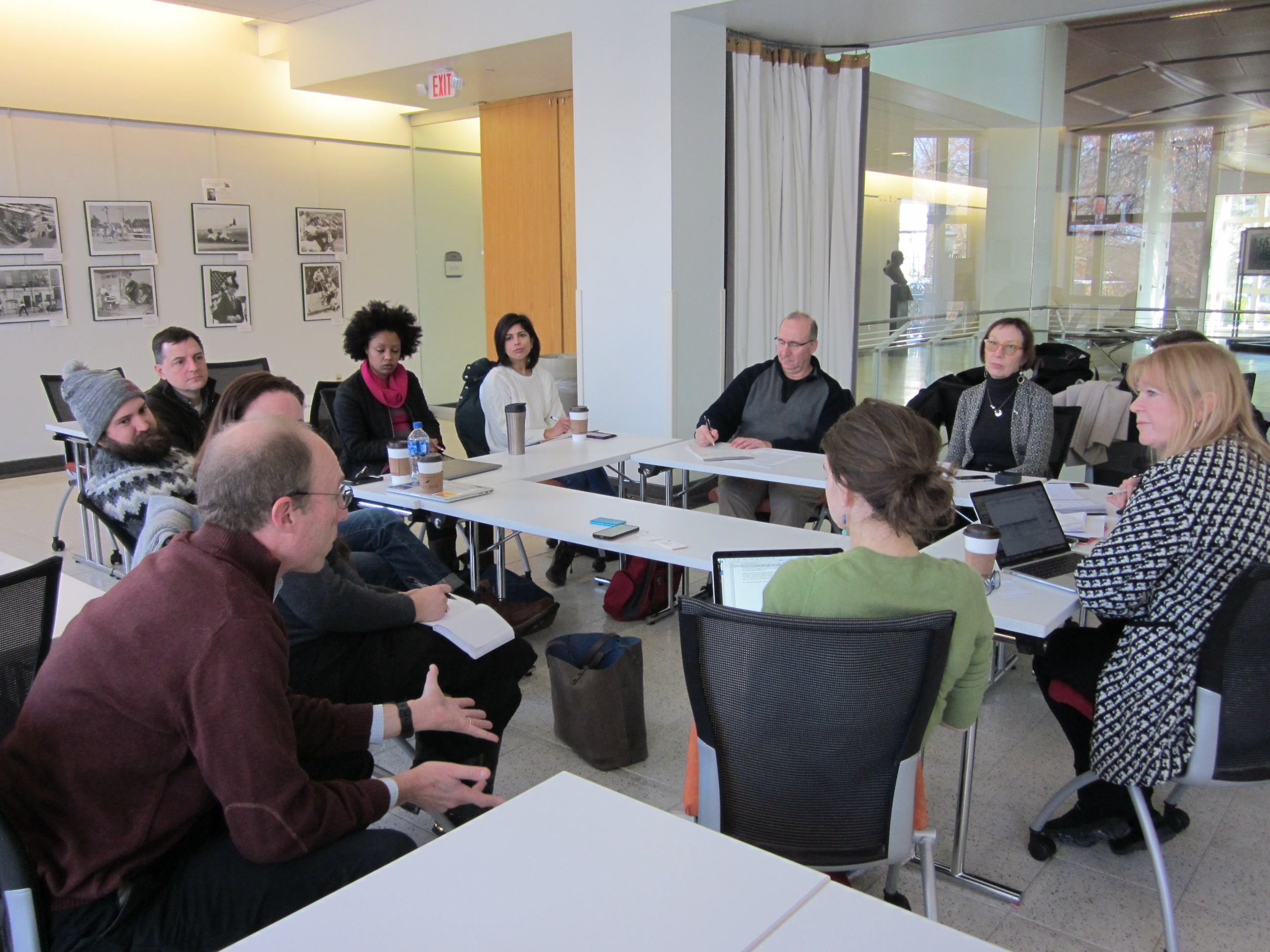Mission to measure threats to press freedom
COLUMBIA, Mo. — Public information is so hard to come by from the office of Missouri Gov. Eric Greitens, that journalists must file written requests under the state’s Open Records law for even the most routine of government facts.
Even then, the information is often not forthcoming because of the lack of enforcement of the state’s Sunshine Law.

That journalistic challenge was described Tuesday during an International Press Freedom fact-finding session hosted by the University of Missouri School of Journalism. The session, which was staffed by executives representing various journalistic organizations, was designed to assess the current climate for the news media in the United States.
Professor Mark Horvit, who supervises MU journalism students covering the Missouri state capital in Jefferson City, explained the frustrations reporters face in trying to obtain news from Greitens’ office. Greitens, a Republican, has made it a practice of avoiding answering reporters’ questions.
Instead, Greitens announces his governmental decisions to his followers on Facebook. Last fall, he moderated a panel discussion at the Republican Governors Association titled “Disrupting the Mainstream Media.”
Horvit said if Greitens is using Facebook to engage with the public, the public has a right to know who Greitens has blocked from commenting on his Facebook page and who has been blocked from seeing it.
“We wanted a list of everybody they blocked,” Horvit said. “In other states, that’s been ruled public information.” But when Horvit’s reporters filed an open records request for the list of who Greitens’ office has blocked, the request was denied.
Under the law, appeals of Open Records request denials are handled by the state attorney general’s office. But according to Horvit, Attorney General Josh Hawley’s office said it could not rule on the appeal because it might create a conflict of interest in the event the attorney general must subsequently represent the governor’s office in litigation.
Horvit said Hawley’s office directed reporters to take their request to Cole County Prosecuting Attorney Mark Richardson, who responded that the appeal was “ridiculous.”
The only recourse for reporters seeking enforcement of Missouri’s Open Records law is to hire a lawyer and go to court. “Open records and access laws are becoming less and less enforceable,” said Horvit, who is the former executive director of Investigative Reporters and Editors.
He was one of several journalists expressing concerns to an international mission that is measuring changes in the press freedom landscape. The mission is being led by the U.S.-based Committee to Protect Journalists and IFEX, a network of freedom of expression groups. The groups are attempting to gauge the effect of anti-press rhetoric on press freedom.
“Allegations of ‘fake news’ leveled at serious media by President Trump have had a pervasive effect on the American value of open government,” said Martha M. Steffens, an MU journalism professor. “Trump’s comments have encouraged officials in some counties and states to restrict access to elected lawmakers, or charge unrealistic fees for data, citing that media is untrustworthy or ‘fake’.”
Steffens is the American Society of Business Editors and Writers endowed chair at the University of Missouri and is a member of the executive board of International Press Institute. She is also a member of the fact-finding mission, which is collecting information in a series of meetings with media and government representatives in Texas, Missouri and Washington, D.C.
“President Trump’s frequent bashing of the media has emboldened autocratic leaders around the world to do the same,” said John Yearwood, chairman of the International Press Institute’s executive board. “This mission sends a strong message that attacks on the media are unacceptable regardless of where they originate.”
Lynden Steele, former photo director at the St. Louis Post-Dispatch, explained to the mission the challenges newspaper photographers faced during protests in Ferguson and in St. Louis following the acquittal last fall of a police officer accused of murder. He talked about how journalists were arrested during the protest and how police singled out a photographer for an extra dose of pepper spray.
“There is a real fight over the narrative about what happens at a protest on social media,” Steele said. “Sometimes it feels like the Wild West with everybody having a different viewpoint, and our job is to sort out some of this.”
Teri Hayt, the executive director of the American Society of News Editors, told the mission that she has heard from more editors about the threats they have received.
“Two editors in the last two months called police to their newsrooms to respond to death threats,” Hayt said. “All these kinds of conversations, there are more than there have ever been before.”
Yearwood and Steffens will present findings from the mission in a Facebook Live exchange with the IPI community from Washington, D.C. on Thursday, Jan. 18 at 9 a.m., EST.
In response for a request for comment, Hawley’s office supplied a letter written to a state senator dealing with a different open records case. Richardson’s office did not comment after a reporter twice sought reaction to Horvit’s comments.